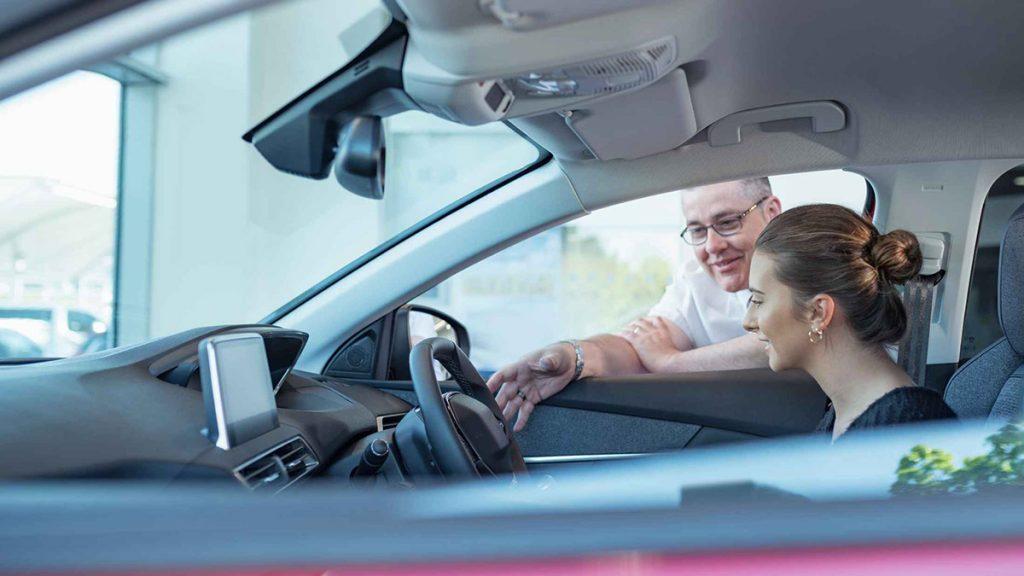How to legally own a car in the UK? Owning a car in the UK can be both difficult and easy, depending on various factors such as your financial situation, location, and driving experience.
How to legally own a car in the UK?
On the one hand, buying a car in the UK can be relatively straightforward, with many dealerships and private sellers offering a range of vehicles to suit different budgets and preferences. However, purchasing a car can be expensive, particularly if you opt for a new model or a high-end vehicle.
Once you have bought a car, you will also need to factor in the ongoing costs of ownership, including road tax, insurance, fuel, maintenance, and repairs. These costs can quickly add up, particularly if you drive frequently or have an older vehicle that requires more maintenance.
In terms of driving in the UK, there are a number of regulations and requirements that you will need to adhere to. For example, you will need a valid driving license, car insurance, and an MOT certificate (an annual test to ensure your car is roadworthy) in order to legally drive on UK roads. You will also need to familiarize yourself with UK road laws and regulations, which can differ from those in other countries.
Overall, owning a car in the UK can be both difficult and easy, depending on your individual circumstances and priorities. If you are prepared to invest the time and money required to purchase and maintain a vehicle, and are willing to follow the necessary regulations and laws, then owning a car can provide a great deal of freedom and flexibility.

What conditions do I need to own a car in the UK?
To legally own and operate a car in the UK, there are several conditions that you will need to meet. These include:
- A valid driving license: You will need a valid driving license to operate a car in the UK. If you are a UK resident, you can apply for a provisional driving license from the Driver and Vehicle Licensing Agency (DVLA) at the age of 17.
- Car insurance: It is a legal requirement to have car insurance in the UK. You will need to purchase at least third-party insurance, which covers any damage or injury you may cause to another driver, their vehicle, or their property.
- Road tax: You will need to pay road tax (also known as vehicle excise duty) for your car, which is based on the CO2 emissions of your vehicle. You can pay road tax online or at a post office.
- MOT certificate: All cars in the UK must have a valid MOT certificate, which is an annual test to ensure that your car is roadworthy and meets certain safety and environmental standards.
- Vehicle registration: You will need to register your car with the DVLA, which involves completing a V5C form and providing details about the car, such as its make, model, and registration number.
- Understanding UK road laws: You will need to familiarize yourself with UK road laws and regulations, which can differ from those in other countries. This includes driving on the left-hand side of the road, following speed limits, and understanding road signs and markings.
Meeting these conditions will allow you to legally own and operate a car in the UK.

If I’m not a UK citizen, can I legally own a vehicle in the UK?
Yes, it is possible for non-UK citizens to legally own a vehicle in the UK. However, there are some additional requirements that non-UK citizens will need to meet. These include:
- A valid driving license: Non-UK citizens can drive in the UK with a valid driving license from their home country or an international driving permit. Some countries have reciprocal agreements with the UK, which may allow drivers to exchange their foreign license for a UK license.
- Car insurance: Non-UK citizens will need to purchase car insurance in the UK. It may be more difficult to find insurance as a non-UK citizen, but there are many insurance providers that offer policies to international drivers.
- Road tax: Non-UK citizens will also need to pay road tax for their vehicle.
- MOT certificate: All cars in the UK must have a valid MOT certificate, regardless of the owner’s nationality.
- Vehicle registration: Non-UK citizens will need to register their vehicle with the DVLA, just like UK citizens. This involves completing a V5C form and providing details about the car, such as its make, model, and registration number.
- Understanding UK road laws: Non-UK citizens will also need to familiarize themselves with UK road laws and regulations, as these may differ from those in their home country.
It’s important to note that non-UK citizens may face additional challenges when owning a vehicle in the UK, such as higher insurance premiums or difficulties with financing a vehicle. However, it is possible for non-UK citizens to legally own and operate a vehicle in the UK as long as they meet the necessary requirements.
What conditions do I need to own a car in the UK for a non-UK citizen?
To own a car in the UK as a non-UK citizen, you will need to meet certain requirements. Some of the main conditions include:
- A valid driving license: Non-UK citizens can drive in the UK with a valid driving license from their home country or an international driving permit. Some countries have reciprocal agreements with the UK, which may allow drivers to exchange their foreign license for a UK license.
- Car insurance: It is a legal requirement to have car insurance in the UK. Non-UK citizens will need to purchase car insurance in the UK. It may be more difficult to find insurance as a non-UK citizen, but there are many insurance providers that offer policies to international drivers.
- Road tax: Non-UK citizens will also need to pay road tax for their vehicle.
- MOT certificate: All cars in the UK must have a valid MOT certificate, regardless of the owner’s nationality.
- Vehicle registration: Non-UK citizens will need to register their vehicle with the Driver and Vehicle Licensing Agency (DVLA), just like UK citizens. This involves completing a V5C form and providing details about the car, such as its make, model, and registration number.
- Understanding UK road laws: Non-UK citizens will also need to familiarize themselves with UK road laws and regulations, as these may differ from those in their home country.
It’s important to note that non-UK citizens may face additional challenges when owning a vehicle in the UK, such as higher insurance premiums or difficulties with financing a vehicle. However, it is possible for non-UK citizens to legally own and operate a vehicle in the UK as long as they meet the necessary requirements.

How to register a vehicle in UK?
To register a vehicle in the UK, you will need to follow these steps:
- Get vehicle insurance: Before registering your vehicle, you must get it insured. You will need to provide the vehicle registration number and details about the make and model of the vehicle to the insurance company.
- Get a vehicle registration certificate (V5C): You can get a V5C form from the Driver and Vehicle Licensing Agency (DVLA) or apply for it online. The V5C form is also known as a logbook and contains important information about the vehicle, such as its registration number, engine number, and VIN number.
- Pay the vehicle tax: You will need to pay the appropriate vehicle tax, which varies depending on the type of vehicle and its emissions. You can pay this online, by phone or by post. You will need to provide the vehicle registration number and the V5C document reference number.
-
Get a valid MOT certificate: All vehicles in the UK must have a valid MOT certificate, which shows that the vehicle meets the minimum road safety and environmental standards. You can get an MOT test done at an approved test center. The MOT certificate is valid for one year. - Display your registration plates: Once you have completed the above steps, you will receive a registration certificate and number plates from the DVLA. You must display the registration plates on the vehicle.
It’s important to note that if you are importing a vehicle from outside the UK, you will need to follow additional steps, such as getting it registered with the DVLA and getting it tested to make sure it meets UK road standards.
